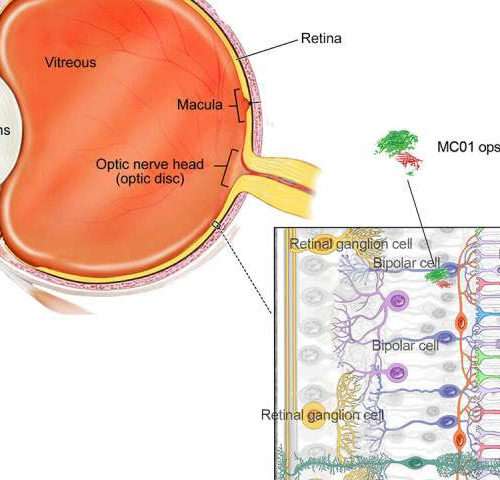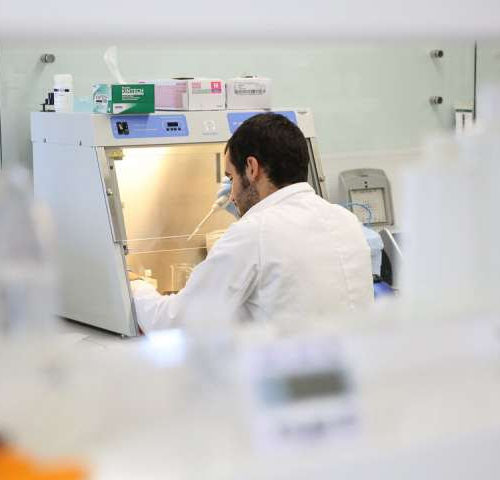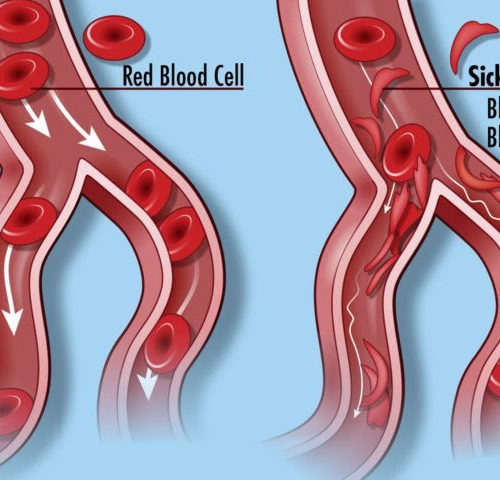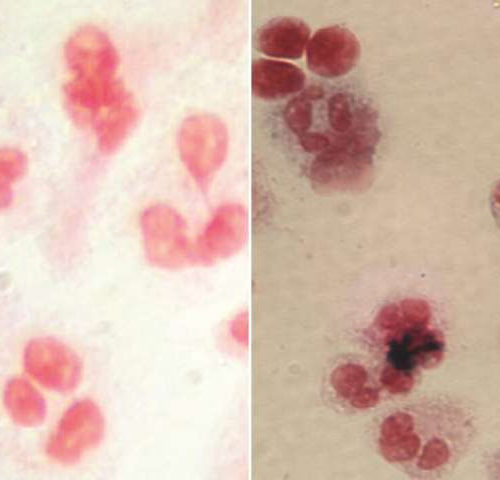by National Eye Institute Detail shows structure of retina, including location of a bipolar cell expressing Nanoscope’s MCO1 opsin. A newly developed light-sensing protein called the MCO1 opsin restores vision in blind mice when attached to retina bipolar cells using gene therapy. The National Eye Institute, part of the National Institutes of Health, provided a Small...
Tag: <span>Gene Therapy</span>
Discovery challenges the foundations of gene therapy
by Children’s Medical Research Institute Marti Cabanes-Creus in the Translational Vectorology lab at Children’s Medical Research Institute. A new publication by scientists from Children’s Medical Research Institute has challenged one of the foundations of the gene therapy field and will help to improve strategies for treating serious genetic disorders of the liver. The paper titled,...
Viruses for the Good: Gene Therapy for Sickle Cell Disease
While the world worries about novel coronavirus SARS-CoV-2, other viruses continue to be used for the good – as vectors that ferry in healing genes for gene therapy and editing. Charles Hough calls himself “reborn” after lentiviruses – disabled versions of HIV – gave his blood cells the gene that overrides the mutant one that...
How gene therapy may hold key to treating life-threatening cardiac disease
by University of California – San Diego Danon disease is a very rare, life-threatening condition where the fundamental biological process of removing and recycling proteins does not work. This impairment results in dysfunction of the heart, skeletal muscle, neurologic system, eyes, and liver. Most patients die or require heart transplants by the third decade of...
Gene therapy can protect against ALS and SMA-related cell death
Researchers at Karolinska Institutet in Sweden and the University of Milan in Italy have identified a gene in human neurons that protects against the degeneration of motor neurons in the deadly diseases ALS and SMA. Gene therapy in animal models of these diseases was shown to protect against cell death and increase life expectancy. The...
Six patients with rare blood disease are doing well after gene therapy clinical trial
by Sarah C.p. Williams, University of California, Los Angeles UCLA researchers are part of an international team that reported the use of a stem cell gene therapy to treat nine people with the rare, inherited blood disease known as X-linked chronic granulomatous disease, or X-CGD. Six of those patients are now in remission and have...
Scientists show gene therapy protection of eyesight in models of multiple sclerosis
by Jim Fessenden, University of Massachusetts Medical School New research by Dorothy P. Schafer, Ph.D., at the University of Massachusetts Medical School, reveals the molecular process in which synaptic connections in the brain are damaged in multiple sclerosis and how this contributes to neurodegenerative symptoms. The paper, published in Immunity, also shows how gene therapy...
Using gene therapy to treat chronic traumatic encephalopathy
MARY ANN LIEBERT, INC./GENETIC ENGINEERING NEWS New Rochelle, NY, January 3, 2020–A new study shows the feasibility of using gene therapy to treat the progressive neurodegenerative disorder chronic traumatic encephalopathy (CTE). The study, which demonstrated the effectiveness of direct delivery of gene therapy into the brain of a mouse model of CTE, is published in...
Gene therapy is facing its biggest challenge yet
After finally gaining traction as a potential treatment for certain genetic disorders, gene therapy tackles the challenge of sickle-cell disease. Grajevis Bakatunkanda’s mother knew the signs: when her son lost interest in dinner, that meant the pain was on its way. It would strike, like clockwork, nearly every week. Soon the shy, skinny boy would...
New gene therapy for epilepsy provides on-demand release of endogenous substance
Preclinical study shows long-term suppression of seizures CHARITÉ – UNIVERSITÄTSMEDIZIN BERLIN Teams of researchers from Charité – Universitätsmedizin Berlin and the Medical University of Innsbruck have developed a new therapeutic concept for the treatment of temporal lobe epilepsy. It represents a gene therapy capable of suppressing seizures at their site of origin on demand. Having...





